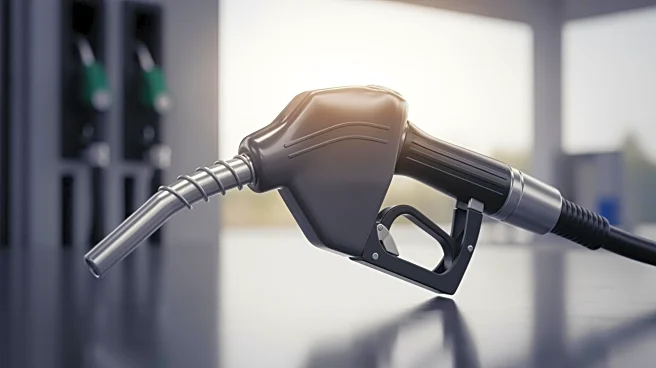What's Happening?
The gas station industry in the U.S. is a significant sector, generating $250 billion annually with over 120,000 stations nationwide. These stations are categorized as either franchised or independent.
Franchised stations operate under agreements with national suppliers like Exxon and BP, while independent stations sell unbranded fuel from regional suppliers. A critical aspect for potential buyers is understanding the environmental history of a station, as contamination can lead to costly remediation. Additionally, the ownership of pumps and tanks, often held by franchisors or property owners, is vital for operational profitability. The presence of convenience stores, which are attached to over 80% of gas stations, is also a major revenue source, as margins on fuel sales are typically low.
Why It's Important?
The gas station industry is a cornerstone of the U.S. economy, supporting transportation and logistics sectors. For investors, understanding the nuances between franchised and independent operations is crucial for making informed decisions. Environmental considerations are paramount, as contamination issues can severely impact profitability and operational viability. The industry's reliance on ancillary sales, such as convenience store items, highlights the importance of diversified revenue streams. This sector's stability and growth potential make it an attractive investment, but due diligence is essential to mitigate risks associated with environmental liabilities and asset ownership.
What's Next?
Prospective buyers should conduct thorough due diligence, including environmental site assessments and legal evaluations of franchise agreements. Understanding local market dynamics, such as traffic patterns and construction projects, can influence station success. Buyers should also consider the long-term viability of the location and the potential for future environmental regulations that could impact operations. Engaging with legal and environmental experts can provide insights into structuring purchase agreements to protect against unforeseen liabilities.
Beyond the Headlines
The gas station industry faces challenges from evolving environmental regulations and shifts towards renewable energy sources. As electric vehicles become more prevalent, stations may need to adapt by offering charging facilities. The integration of technology, such as mobile payment systems and loyalty programs, can enhance customer experience and drive sales. Additionally, the cultural shift towards sustainability may influence consumer preferences, impacting traditional fuel sales.










